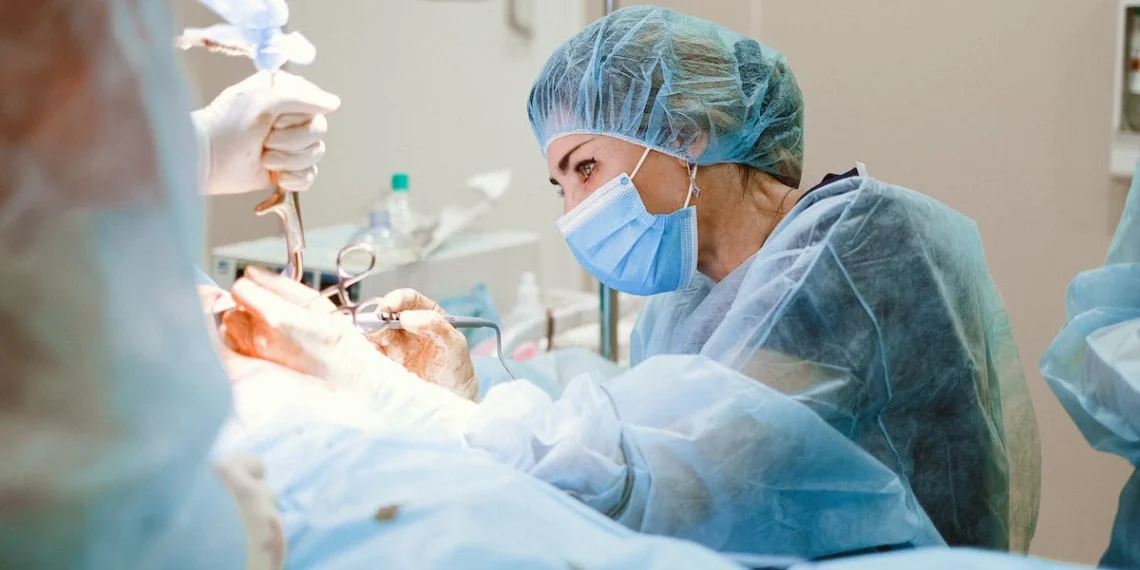Contents
Introduction
Within the realm of healthcare, a unique and indispensable role unfolds in the form of surgical technologists, often shrouded in the intricacies of the operating theater. These enigmatic professionals, known as surgical techs, stand as silent sentinels of surgical precision, orchestrating the symphony of procedures alongside skilled surgeons and healthcare cohorts. In this article, we embark on a journey into the world of surgical techs, unveiling the layers of their vital contributions and the labyrinth of challenges and rewards that define their captivating career path.
What is a surgical tech?
Surgical technologists, often referred to as surgical techs, occupy pivotal roles within the surgical ensemble. Collaborating closely with surgeons and their medical cohorts, their primary function lies in orchestrating and facilitating surgical procedures. The success of these endeavors hinges on the surgical techs’ dexterity in ensuring an aseptic environment and furnishing surgeons with the requisite instruments and materials.
Why is a surgical tech an important member of the surgical team?
Surgical techs underpin the triumph of surgical endeavors by:
Attuning the operating theater and the patient for the impending procedure.
Actively participating in the surgical process by delivering instruments and requisites.
Enforcing sterility and upkeeping surgical apparatus.
Safeguarding the sanctity of the operating environment.
Diligently monitoring the patient’s vital indicators and their overall well-being.
Assisting the surgeon in suturing incisions post-surgery.
What does a surgical tech do?
The realm of duties encompassing surgical techs is multifaceted and includes:
Paving the way for the surgery by preparing the operating suite, sanitizing surgical instruments, and swathing the patient in sterile drapery.
Synchronizing with the surgeon during the procedure by offering instruments and requisites and aiding in tissue and organ retraction.
Disinfecting and preserving surgical instruments and equipment to forestall infections.
Upholding the sterility of the operating chamber to forestall patient infections.
Vigilantly monitoring the patient’s vital signs and overall health, thereby ensuring their well-being throughout the surgery.
Collaborating with the surgeon to conclude the surgical incision, thus fostering the healing process.
How to become a surgical tech
To embark on the journey of becoming a surgical tech, one must traverse the following steps:
Education requirements
The academic and training requisites for surgical technologists exhibit variance across states. Nonetheless, the majority necessitate the completion of a two-year associate’s degree program in surgical technology. This educational pursuit encompasses courses delving into anatomy, physiology, microbiology, pharmacology, and surgical procedures.
Certification and license
Although not obligatory, certification bears paramount importance. It serves as a testament to one’s competence and knowledge, essential for the secure and efficient execution of duties. Two national certifying entities for surgical techs, the National Center for Competency Testing (NCCT) and the Association of Surgical Technologists (AST), administer certification examinations.
License, while not mandated universally, is obligatory in select states. To secure a license, one must successfully navigate a state-conducted examination.
Salary and job outlook
The median annual remuneration for surgical techs, as reported by the Bureau of Labor Statistics (BLS), stands at $57,500. Those within the top decile of earners exceed an annual income of $78,560. Forecasts for surgical tech employment are promising, with the BLS prognosticating a 5.4% growth from 2020 to 2030, surpassing the average for all vocations.
Benefits of working as a surgical tech
The profession of a surgical tech presents numerous merits, including:
A lucrative income and promising employment prospects.
The opportunity to collaborate within a closely-knit team.
The satisfaction derived from being an integral contributor to healthcare.
Prospects for ascending into higher-paying roles.
Challenges of working as a surgical tech
Extended Hours and On-Call Commitments: Surgical techs frequently contend with extended shifts, encompassing nocturnal hours, weekends, and holidays. They may be subject to on-call obligations, necessitating immediate availability, which can pose challenges for those with familial or extracurricular commitments.
Adeptness Under Pressure: Surgical techs must operate adeptly within a frenetic milieu, managing multiple concurrent responsibilities while preserving composure in high-stress situations.
Physical Demands: The role frequently demands the lifting and manipulation of heavy objects, including surgical apparatus and patients, thus requiring robust physical conditioning.
Potential Exposure to Bodily Fluids: Surgical techs may confront exposure to bodily fluids, including blood. This entails infection risks, mandating rigorous protective measures.
Personal Skills and Qualities Needed for Surgical Techs
Precision and Meticulousness: Surgical techs must exhibit unwavering precision and meticulousness, imperative for patient safety and surgical triumph.
Collaboration: Effective collaboration with surgeons, nurses, and allied healthcare professionals is paramount.
Communication Prowess: Clear and concise communication is indispensable for conveying instructions succinctly and effectively.
Problem-Solving Acumen: Surgical techs must harness their problem-solving acumen to navigate unforeseen challenges that may arise during surgeries.
Empathy: Compassion and empathy are pivotal attributes, particularly when interacting with patients experiencing pain or distress.
Conclusion
For those contemplating a career as a surgical tech, it is imperative to comprehend the intricacies, rewards, and trials that accompany this profession. Surgical techs occupy a linchpin position within the healthcare ecosystem, having a direct impact on the lives of the patients they serve.
Recommended:
STOP LOSS IN HEALTH INSURANCE: HOW IT WORKS AND WHY IT MATTERS




